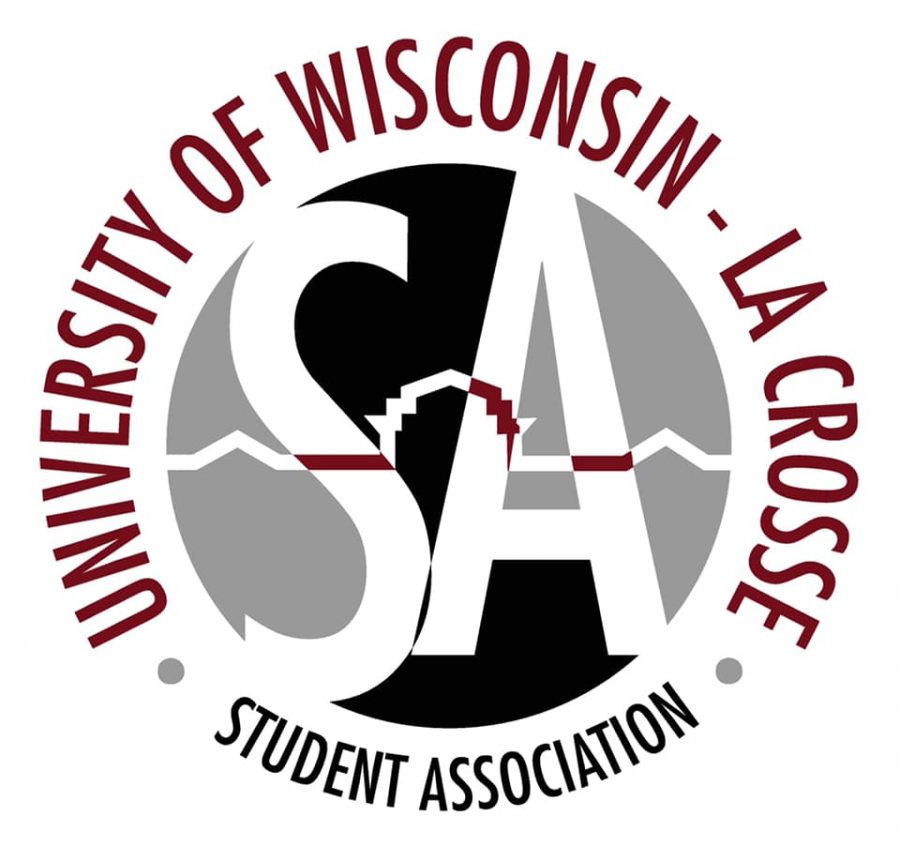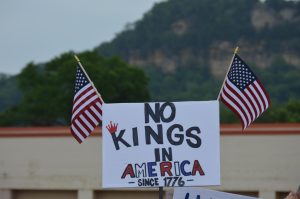Student Senate welcomes guest speakers, discusses student open forum resolution
October 17, 2019
The Student Senate for the University of Wisconsin-La Crosse began their meeting with a land recognition statement, welcomed guest speakers from the Counseling and Testing Center and Western Technical College, passed previous resolutions and had a technical examination of word choice for a student open forum resolution.
Dr. Gretchen Reinders and Dr. Crys Champion from the Counseling and Testing Center view access as a main priority. Reinders said that students were the main reason both she and Champion practice counseling for UWL, doing so in a safe and confidential manner. The awareness for mental health around college campuses has been steadily increasing over the years, including at the UW system. An “enormous” amount of awareness and motivation has been directed towards better addressing mental health across the UW system, which is due in part from the diminishment of stigmas that plague mental health awareness. With a 20-30 percent increase in college students seeking counseling, the high demand means a limit in the access UWL would like to offer students, causing the university to hire new staff members which Reinders has not had to deal with for the five years she’s held a position here. Regarding signs or triggers that may necessitate a counselor’s intervention into a student’s life, Reinders said, “We are looking at not just crisis intervention but also targeted or at-risk populations who may need alternatives to western medicine approaches and prevention.”
Reinders and Champion took questions from the student senate after their presentation on anything that may benefit their constituents. While same day access is offered, it is reserved for more severe or urgent appointments. Students are able to set up an appointment within a three-week time span, as the small number of clinicians UWL offers can only meet with so many patients a day. Reinders and Champion stressed how varied the process is for each person, as some students may need more sessions than others. Each student can attend ten sessions a semester. According to Champion, this is a “broad line” which could be adjusted by clinicians if they see fit for a particular student. “If a student only needs four sessions then that’s great, but if one needs something more then 10 sessions then our services may not be the correct source,” said Champion. Reinders said, “In general, it’s based on the need of the students.”
New counselors have been hired in the last six months after several years of the same staff, filling some positions that have been vacated. Within the next year there could hopefully be three more. Last spring semester there were no hires, as the center uses contract staffing if a vacancy needs to be filled. The ratio for counselors to patients should remain around one for every 15.
Reinders expressed excitement on expanding the center’s services creatively, answer how the counseling center is troubleshooting ways to maximize time slots for more appointments. “If we provide services the way we have, if we hire more, we would have to triple staff in order to meet the level we want to be at,” she said. According to Reinders and Champion, college counseling tends to see patients come and go to around the same time. Counselors on UWL became curios and began to experiment with students to see if prioritizing timing over length of treatment would better suit their life styles/needs. According to the counselors, on average, fifteen percent of students are satisfied with their services after their first session, which helped them formulate a “three sessions, three days” starter for new students.
President Agterberg and Chief of Staff Mark Moralez asked the counselors what their office is doing to support students of color, and if they’re doing an adequate job of hiring people of color in general. “To have underrepresentation means that they know, but they understand that they have not lived your experience. We hire the people we do for a reason and hasn’t been for a lack of effort with inclusion,” Champion, who is an underrepresented specialist for the university, said. Reinders added “as we hire please know that we broadly search for our positions to find the correct person; but we need to do more, and we appreciate the feedback.”
Western Technical college’s sustainability director Casey Mehaan attended the meeting to describe what exactly he does, so the senate could familiarize themselves with what they should know when considering a sustainability director for UWL, the only university in the UW system without one.
“Helping the world think the itself back together” is how Mehaan described his approach to his job. He questions what the leaders on campus do in order to put their institution in-line for a narrative to thrive, while calling out any wrong doing through sociological questions. Doing so has helped the college to be “on trajectory” towards a carbon free campus. In order to spread the word about what Western Tech is doing sustainably, Mehaan does a lot of marketing to fully “spread” their story.
President Agterberg questioned Mehaan on how his committee is funded. “Different from UWL, my funding comes from the top, where your school has currently in the midst of a grassroots movement,” said Meehan. He explained his funding came from college dollars.
The senate questioned Mehaan on how they would be able to add value to a sustainability program for UWL as well as WTC has. “The bottom line is where it comes from. Since 2010 we’ve avoided paying to our utility,” said Mehaan. He reports to a chief financial officer who sees the 2.7 million dollars the program allocates for the university and decides how the program should be funded. Mehaan tries to work with the administration as much as possible, as there is a growing body of research that is show how members of Generation Z want to contribute positively to the world. “People are choosing colleges based on this. A Millennial is more likely to take a job position based on its sustainability level,” Mehaan said.
Senator Stock asked how sustainability is being included into curriculums. “We do it in two ways, not unlike UWL,” said Mehaan. “Western has a core understanding that every graduate is supposed to know before leaving: Climate change is real and the resilience in recognizing it, and how sustainability impacts the profession each student is entering after graduating.” Mehaan says that this way of thinking is helping society change the way it thinks and lives. “Every student has to have an exposure to these things, fundamentally,” Mehaan said.
Incorporating sustainability into the student’s lifestyles has led to a yearly workshop for area schools (Winona State University, UWL, WTC, and “hopefully” Viterbo University) in how to include sustainability into their curriculum.
Mehaan described how he would process a sustainability position for UWL, saying “Don’t limit the vision of what sustainability is.” Mehaan thinks it would be beneficial to have a sustainability and social justice collaboration, making a department that covers all things sociologically damaging. Taking money from each department on campus, which he says could be met with backlash, could be a start in order to fund a future for a program for UWL. “Climate change is social justice, because it is disproportionately impacting disenfranchised people from privileged ignorance on climate change,” Mehaan said. “Elevating people down the road from suffering, and anything we can do is what we want. Recognizing this power dynamic is vital, but making sure the risks are addressed.”
The Student Association passed resolutions that approved new At-Large Senators to participate in the senate hearings, the approval for the fall 2019 Election Results, the support for Kayde Langer and the University of Wisconsin – Eau Clair’s Inter-Tribal Student Council as they voiced their opposition and awareness against racism on UWL campuses, a resolution to create a student safety “Ad-Hoc” Committee and a resolution supporting the Student Call for an Open Forum.
The resolution for a call for an open forum based around Title IX circulated around all different representatives. UWL’s faculty senate made a request to add clarification to the resolution: “Whereas this forum would be a place for questions and dialogue, as opposed to demonstration.” The senate felt uneasy about asking the student body to withhold their passions and rights because the faculty senate told them so. Sen. Lichfus on the other hand saw this technicality as one they could take advantage of, saying it, “Could be wise to have this go through. It could allow for this to hearing to actually happen, based on the slim probability it actually does.”
Sen. McReavy, the author of the resolution, made her case for the proper word choice. The version she came up with states “whereas this forum is more for conversation than demonstration.” McReavy explains her position on the resolution saying that “it’s to support upset students, not limit their expression of feelings.”
Sen. Schock stated that the university’s manner throughout the duration of the sexual misconduct as UWL’s administration “tip-toeing” around how students should be told how to feel. “I don’t like the idea of having administration and faculty to tell us how to react. It originated from students,” Schock said. Schock expressed concern about how underhanded the university is being about the issue, especially with the veil they want over media coverage.
“Regarding media attention, admin should be more concerned how they treat their students than bad publicity,” said Schock.






